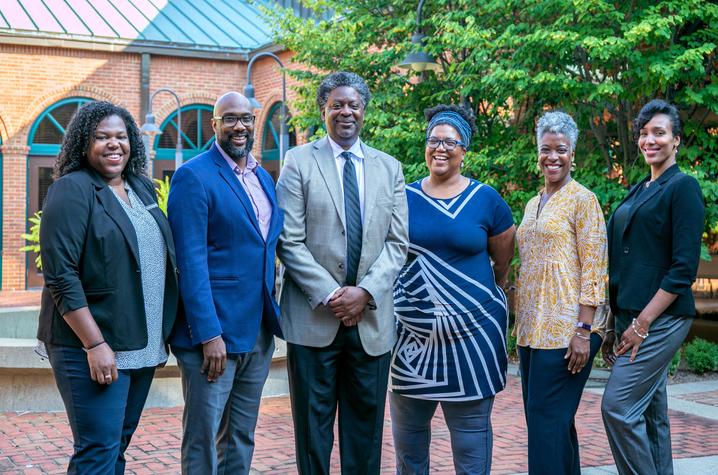 The University of Kentucky has announced the hiring of six new faculty members to enhance its course offerings in African American and Africana studies. Cluster hiring — hiring multiple scholars into one or more departments based on shared research interest — is a way to advance the university’s commitment to diversity and inclusion, while also fostering a learning environment dedicated to collaboration and engagement.
The University of Kentucky has announced the hiring of six new faculty members to enhance its course offerings in African American and Africana studies. Cluster hiring — hiring multiple scholars into one or more departments based on shared research interest — is a way to advance the university’s commitment to diversity and inclusion, while also fostering a learning environment dedicated to collaboration and engagement.
 “Not only does hiring multiple faculty members signal our commitment to African American and Africana Studies within the college, but it also creates a sense of possibility and energy for colleagues who are already here,” notes Anastasia Curwood, director of African American and Africana studies. “The fact that we have added a number of exciting scholars to our roster is an infusion of intellectual energy within the program.”
“Not only does hiring multiple faculty members signal our commitment to African American and Africana Studies within the college, but it also creates a sense of possibility and energy for colleagues who are already here,” notes Anastasia Curwood, director of African American and Africana studies. “The fact that we have added a number of exciting scholars to our roster is an infusion of intellectual energy within the program.”
Dr. Curwood is a graduate of Bryn Mawr College in Pennsylvania. She earned a master’s degree and a Ph.D. in history at Princeton University in New Jersey. Dr. Curwood joined the faculty at the University of Kentucky in 2014.
The new faculty members, who are listed below, will teach core classes in anthropology, English, gender and women’s studies, geography and history.

Nikki Brown is a professor in the department of history. She is the author of Private Politics and Public Voices: Black Women’s Activism from World War I to the New Deal (Indiana University Press, 2006).
Kamahra Ewing is an assistant professor in the department of English. Her research interests include African cultural productions, the African diaspora, Global South cultural flows, democracy, immigration, media studies, public policy and religion.
Regina Hamilton is an assistant professor in the department of English. Hamilton’s research explores 20th and 21st century African American literature. Dr. Hamilton is a graduate of Duke University in Durham, North Carolina. She earned a master’s degree at Georgetown University in Washington, D.C., and a Ph.D. at Rutgers University in New Jersey.
Frances Henderson is a professor in gender and women’s studies. Her research interests center around intersectionality as it occurs in Black political thought, Black feminist theory and social movements in the diaspora.
Bertin M. Louis Jr. is an associate professor in the department of anthropology. He is the author of My Soul is in Haiti: Protestantism in the Haitian Diaspora of the Bahamas (New York University Press, 2014).
Derrick White is a professor in the department of history. He is the author of The Challenge of Blackness: The Institute of the Black World and Political Activism in the 1970s (University Press of Florida, 2011), and Blood, Sweat, and Tears: Jake Gaither, Florida A&M, and the History of Black College Football (University of North Carolina Press, 2019).

